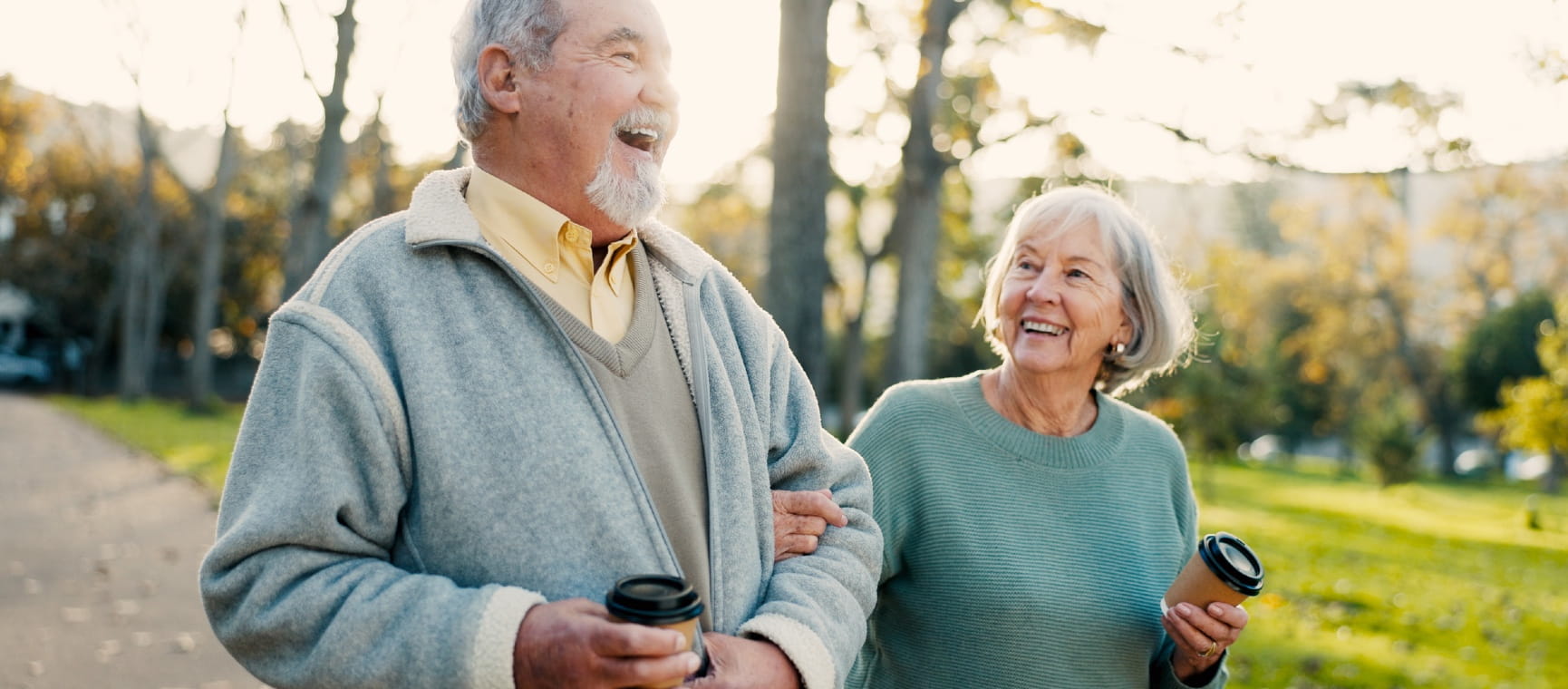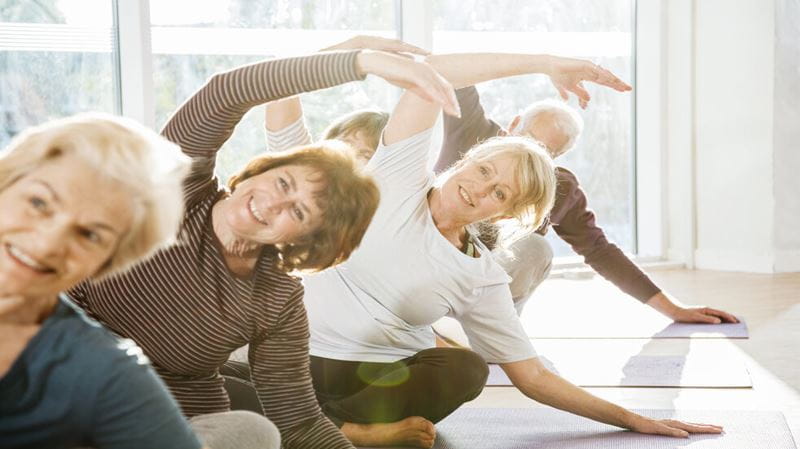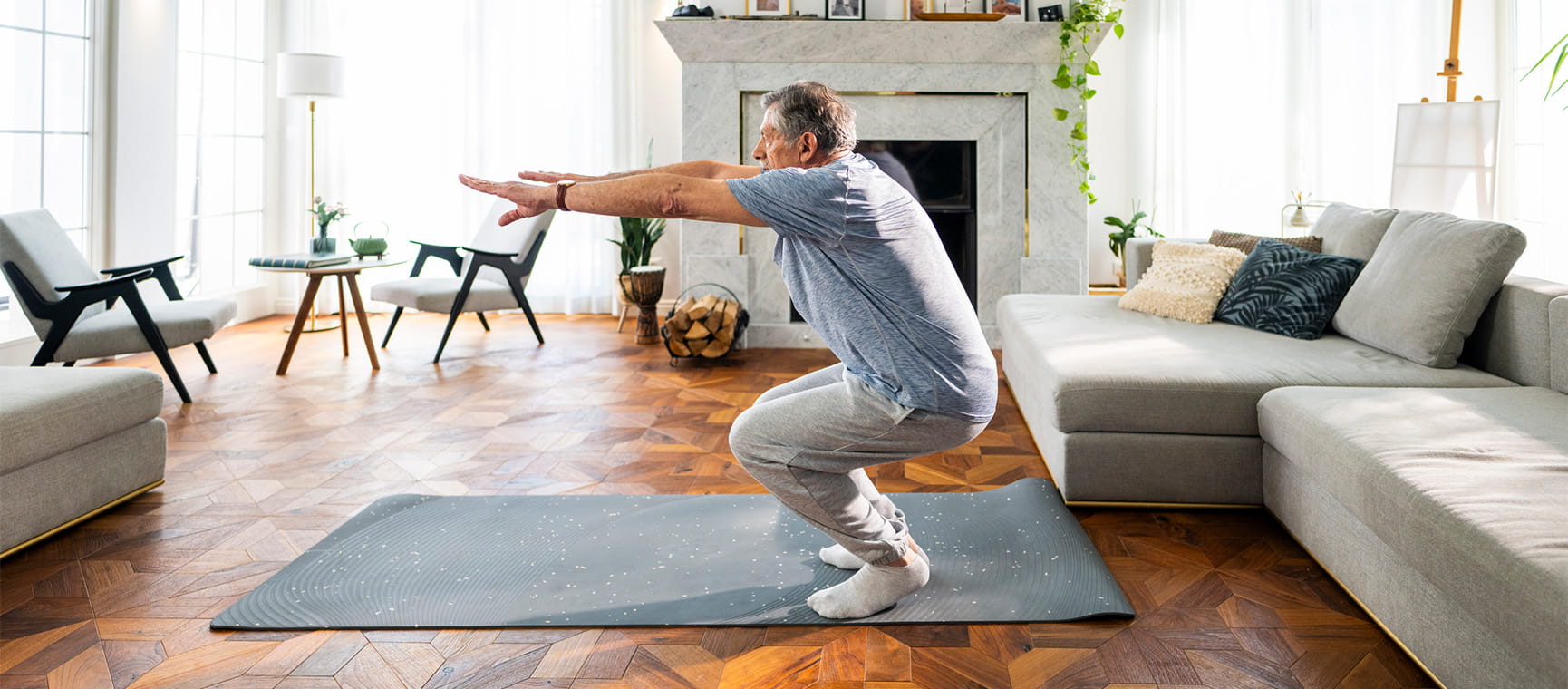The 5 vital steps to take for a fulfilling later life
Resilience therapist and midlife coach Gill Mathias lays out her roadmap for enjoying later life – and discovering how to really enjoy your third act.

Resilience therapist and midlife coach Gill Mathias lays out her roadmap for enjoying later life – and discovering how to really enjoy your third act.

If you are over 50 and facing change, it is normal to feel a bit discombobulated.
Gill Mathias, 75, launched her life coaching business in her sixties – she was formerly managing director of a property firm. Since then, she has coached hundreds of people through the challenges of later life, the majority of whom have been over the age of 50.
“People come to me when they’re feeling a bit stuck,” she says. “They might be facing a significant challenge in their lives, like adjusting to retirement, and need help navigating this change.”
Mathias has developed a framework that encourages her clients to interrogate five areas of their life: a sense of purpose, physical activity, practicalities, the psychological aspects and their personal life. She calls these the “Five Ps” which together form a useful starting point for finding fulfilment in later life.
“A generation ago, people were sitting in their chairs knitting or smoking,” she says. “Now, people want to get out and about and really enjoy the third act of their lives.”
The Five Ps are intended to help you do just that, especially if you are feeling a bit lost.

“This is a journey of discovering what you want,” says Mathias. “You should start with self-reflection, asking difficult questions about what is right for you now. What are you passionate about and what can bring you fulfilment?”
A lack of purpose can affect your health, she says, causing stress and anxiety. But your sense of purpose may need to be redefined in retirement.
“If you are no longer a doctor, salesperson, electrician, plumber, director, teacher – who are you now?” asks Mathias. “Give yourself some time to reflect, get to know yourself again, and find new passions.”
This can be an opportunity to rediscover childhood hobbies, take up a stress-free part-time role, or volunteer. Some retirees find a sense of purpose in grandparenting, or in compiling and completing a bucket list.
“Perhaps scuba diving in the Galapagos Islands, going on a safari, creating a family tree, or learning a new skill,” says Mathias.
Identify what you want in later life – and then plan how you can achieve this.

"Healthy eating is vital, particularly foods such as nuts, fruit, vegetables, fish and poultry,” says Mathias. “Research shows that the Mediterranean diet encourages a happier outlook and improves your overall quality of life."
Don’t underestimate the benefits of a good night’s sleep, she says, and the value of remaining active. “Exercise triggers the release of endorphins which are natural mood boosters – like a happy pill,” says Mathias.
She stresses that this doesn’t have to be anything too rigorous, but just moving your body in a way that suits your capability.
Relaxation is crucial for fulfilment in later life, too, with Mathias recommending breathwork, yoga, sound baths and walks in nature. “These activities also help with brain fog, sleep and concentration,” adds Mathias.
To help with stress, try an easy breathing routine, inhaling through your nose for four seconds, holding your breath for four seconds, then breathing out through your mouth for eight seconds, and repeating as often as necessary.

This step prompts you to chart the practical steps you need to take to achieve what you want. “Set specific, measurable goals that align with your priorities,” says Mathias. “This will help you stay focused.”
For example, if you’d like to write a book, you might aim to work on it for a couple of hours every day. If you’d like to travel more, you might take the time to schedule and plan your next trip.
Write down your goals and break down how you will achieve them.

Pay attention to your mental health, too, which might suffer in later life for all sorts of reasons, from anxiety about the future, to questioning decisions you made earlier in your life.
“You should allow yourself to reflect on your successes, set new goals, or start new hobbies,” says Mathias. “Volunteering for a good cause may also help with your mental health.”
She advises practising self-compassion. “Sometimes that inner voice inside our heads can be so critical, but try not to judge yourself too harshly,” she says. “Instead, talk to yourself as you would talk to your best friend.”
A “reframing” technique can be useful here, where you replace negative thoughts with something more rational. For example, “I don’t have many friends, people must not like me” becomes “I have some friends, so I know I can make more”.
Who you choose to spend time with is also important. “Mixing with positive, cheerful people improves your self-esteem and overall outlook on life,” says Mathias.
Give a genuine compliment to someone every day. A random act of kindness increases your mental well-being.

This step is all about prioritising yourself and self-care. “What can you do to help yourself feel better or keep yourself feeling good?” says Mathias. “Time for yourself is not selfish.”
Mathias advises maintaining boundaries by learning to say “no” to protect your own needs and treating yourself to activities that make you feel good. “This could include a massage, spending time on a hobby that brings you joy, or intentional alone time.”
With her clients, she advocates what she calls “the golden hour”, which is daily time for you to walk, exercise, meditate, journal or read.
“This will change your life,” she says. She notes that this doesn’t have to be a full hour at a time but can be broken down into 4 x 15-minute periods if that is more achievable.
If you take this approach, she recommends getting up 15 minutes earlier to just “be”, or enjoying 15 minutes of downtime before bed.
“No TV, no social media, no intense discussions. Instead, a shower, and lavender on the pillow!”
Seeking new experiences in later life can also promote fulfilment. For example, Mathias went paragliding in Turkey at the age of 75. But if you’re not such an adrenaline junkie, she suggests anything that pulls you out of your comfort zone and allows you to meet new people.
"Joining an organisation like the u3a will give you new opportunities, whether that’s going dancing or taking a history course,” she says.
Take the time to write down three good things that happen every day.

For a limited time only, save 15% off all escorted tours, or 10% off any hotel stay 14 nights or longer, departing before March 31, 2027. But hurry, this offer will not be on for long!
#T&C’s apply.

Get 3 months free, plus a £125 Totally Rewards Wellness Gift Card when you start a new policy by the end of 19 February 2026. T&Cs apply.
Underwritten by Bupa Insurance Limited.

Are you retiring at the wrong age? The best age to retire for your body, brain, happiness and pocket.


Everything you need to know about the lung infection, and how you could be ill with “walking” pneumonia without realising it.

Strong calves for a strong mind: how they support our circulation and brain health, with easy moves to strengthen yours at home.


Our GP Dr Mark Porter explains what can cause itchy skin, which is a common problem as we get older.

Worried you’ve morphed into Victor Meldrew? Find out how to battle that bad mood, and what to do if you’re stuck with a grouchy loved one.

The benefits of heat and cold therapy, and how Nordic bathing won over our nervous writer.

Here’s how to spot the symptoms of heat disease and reduce your danger.


The NHS winter vaccination campaign kicks off next week. Here’s the lowdown on what you need to book.

Pilates for back pain – what to do if you are suffering, and five gentle exercises that could help.

Dizziness or vertigo: a sensation of spinning, can stop us doing everyday things for fear of falling. Try these tips to stop feeling dizzy


You don’t have to put up with bladder leaks. We try out the latest pelvic floor gadgets for men and women.

Cataracts are a normal part of ageing. Learn how to spot the signs – and when it’s time to consider surgery.